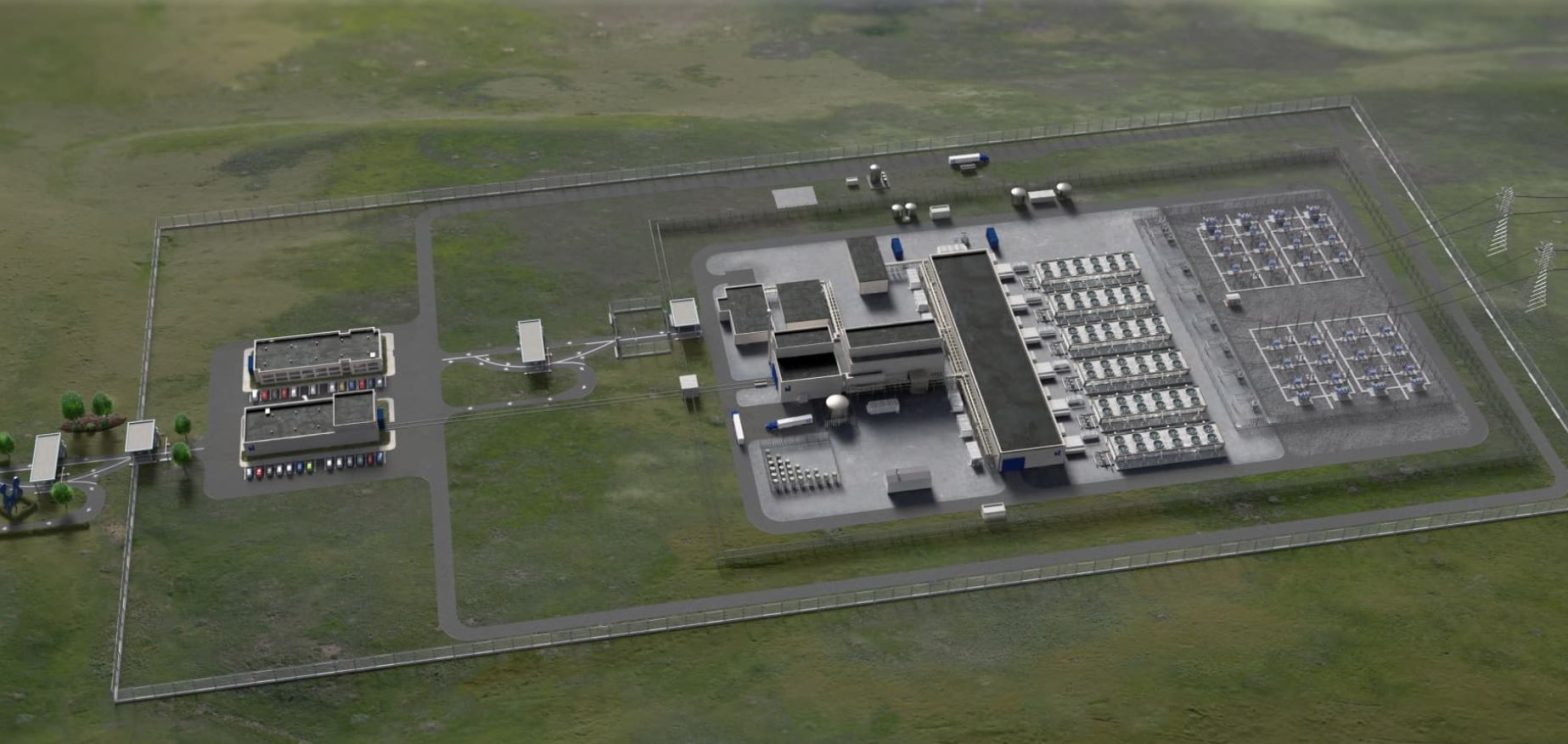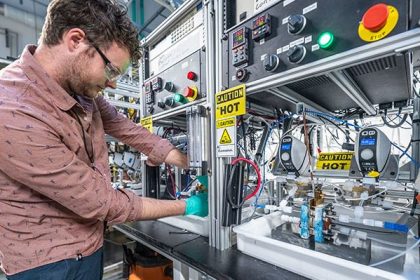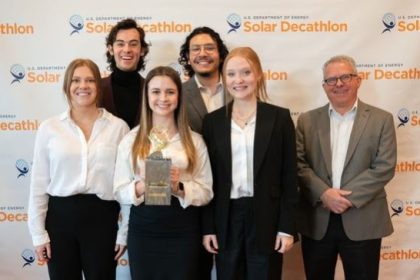Bell Tolls for First Small Nuclear Power Plant Planned in US

IDAHO FALLS, Idaho — The partners behind what would have been the United States’ first operational small modular nuclear reactor have pulled the plug on the project, citing dramatically escalating start-up costs and a lack of takers for its energy.
“This decision is very disappointing given the years of pioneering hard work put into the Carbon Free Power Project,” said Mason Baker, chief executive officer of Utah Associated Municipal Power Systems, one of the partners in the project that started over a decade ago.
“Yet this decision is the best course of action for [system] members participating in the Carbon Free Power Project and doing what is best for those member communities will always be the guiding light in such decisions,” he said.
“We have learned many invaluable lessons during the development of the Carbon Free Power Project that we will carry forward in future development work to meet the future energy needs of the Utah Associated Municipal Power Systems member communities,” Baker said.
The other partners were the NuScale Power Corporation, a Portland, Oregon-based designer and builder of small modular nuclear reactors, and the U.S. Department of Energy.
Their plan was to deploy six, 77-MW modules at the Department of Energy’s Idaho National Laboratory, and generate up to 462 MW of carbon-free electricity annually.
One megawatt equals 1 million watts or 1,000 kilowatts, roughly enough electricity for the instantaneous demand of 750 homes at once.
The first NuScale Power Module was to begin generating power in 2029, with the remaining modules coming online for full plant operation by 2030, at which time the partners believed they would be supplying enough clean electricity to power 346,500 homes in communities across the intermountain West.
The story of the Carbon Free Power Project is bound to become a cautionary tale, especially as everything seemed to fall into place for the project for so long.
To begin with, the location at the Idaho National Laboratory was seen as ideal because the facility had been a center for the federal government’s nuclear research for more than 70 years.
What’s more, the project enjoyed broad bipartisan support.
It was the Energy Department under former President Donald Trump’s watch that originally approved a cost-sharing plan of up to $1.4 billion for the project, and the Biden administration has continued that support, seeing the project as right in line with President Biden’s goal of achieving a net 50%-52% reduction in greenhouse gas emissions from 2005 levels by 2030.
“The whole world has to lean into getting to net zero and addressing climate change; nuclear is such a clear part of that,” Energy Secretary Jennifer Granholm said during a visit to the Idaho National Laboratory in 2022.
“I meet with my counterparts from all over the world, and everywhere people are looking to us to help them reach their goals with nuclear,” she said.
Nuclear power got an additional boost when Biden signed the Inflation Reduction Act into law last year.
Not only did the law include tax credits to incentivize owners of existing nuclear plants to keep them open, it also modified the Clean Energy Production Tax Credit to support investment in new small modular and other advanced reactors.
The change, to the definition of “qualified facility,” effectively extended the tax credit to any plant placed into service after Dec. 31, 2024, that produces zero greenhouse gas emissions.
But for all that, the project partners said last week that they simply didn’t have enough subscribers for their power to allow construction to go ahead.
In March, NuScale estimated it would need customers to buy about 80% of the plant’s output ahead of time for the project to go ahead. At the time, it had sold only about 25%, and published reports this week said the level of subscriptions had not improved.
Minutes of a meeting of the Idaho Falls Power Board illustrate other challenges the Carbon Free Power Project was up against.
During that meeting, Bear Prairie, general manager of Idaho Falls Power, said the project was experiencing dramatically escalating costs, with most of the increases being due to inflationary pressures on supply chain items like steel, concrete, rebar, labor “and, honestly, about everything,” that had not been seen in this magnitude “for more than 40 years.”
With the increase in costs, the estimated cost of energy from the plant also skyrocketed, from an original $58 per MWh to $89 per MWh, even with tax credits and other government support.
And there were fears the cost could go even higher because the $89 per MWh was predicated on the developers being able to cut the estimated $5.1 billion cost of the project by some $700 million.
Prairie, whose utility walked away from an offer to buy power from the project, told the board he felt it was his duty to disclose the project risks and known costs.
He also talked of his concerns about the whole idea of “developing first-of-kind nuclear technology and its unforeseen and uncapped cost escalation risks.”
At the same time, he said he’d welcome the project developers if they came to him with “a better deal that makes economic sense and arrives at an acceptable cost/risk factor for Idaho Falls.”
John Hopkins, president and chief executive officer of NuScale, said the partners’ work on the Carbon Free Power Project over the past 10 years “has advanced NuScale technology to the stage of commercial deployment; reaching that milestone is a tremendous success which we will continue to build on with future customers.”
He also vowed that the company would continue its efforts with other domestic and international customers to bring our American small modular technology to market and grow the U.S. nuclear manufacturing base, creating jobs across the U.S. “We thank Utah Associated Municipal Power Systems for the collaboration that has enabled this advancement,” Hopkins said.
Dan can be reached at [email protected] and @DanMcCue

























